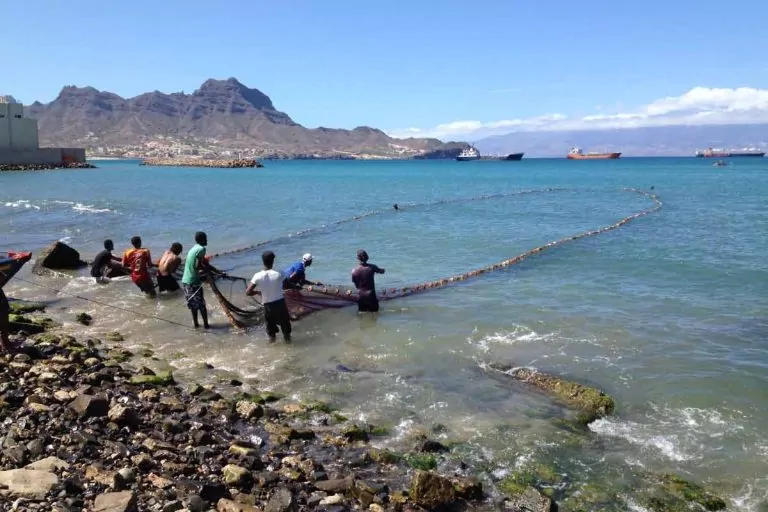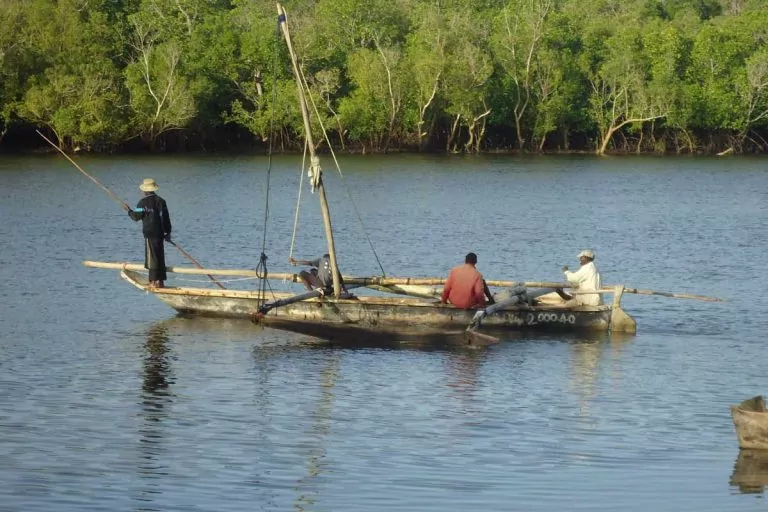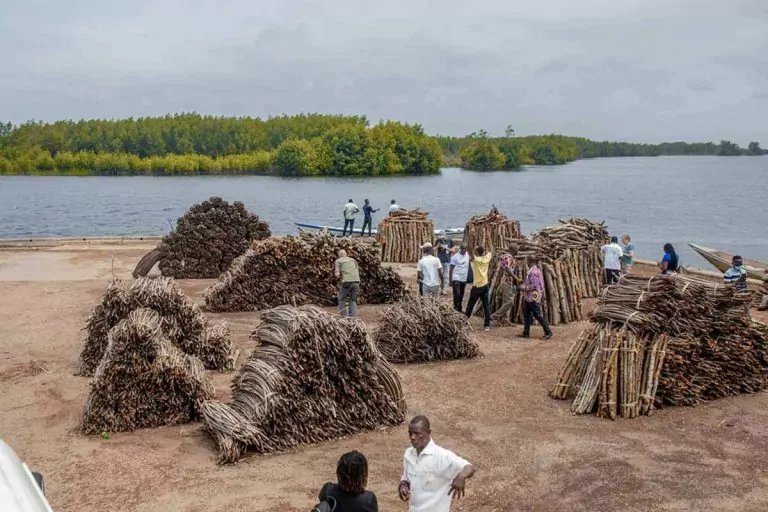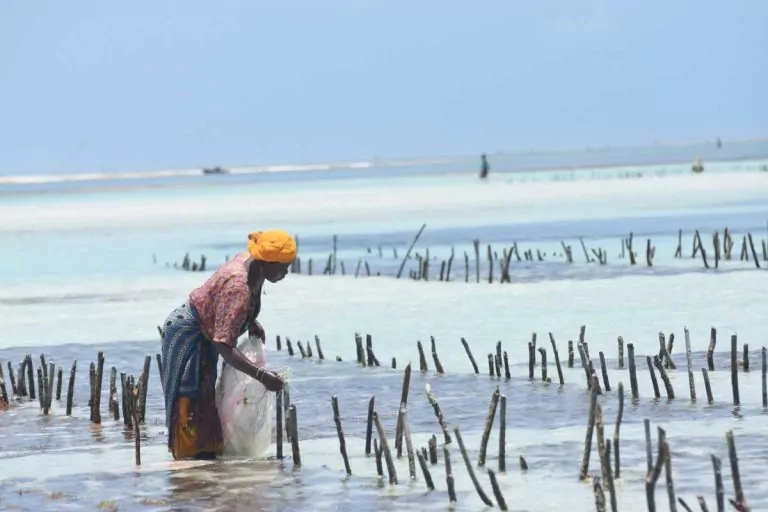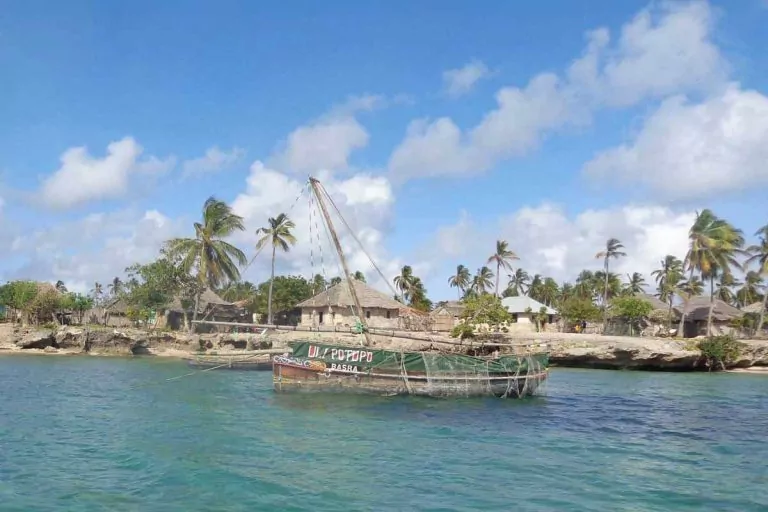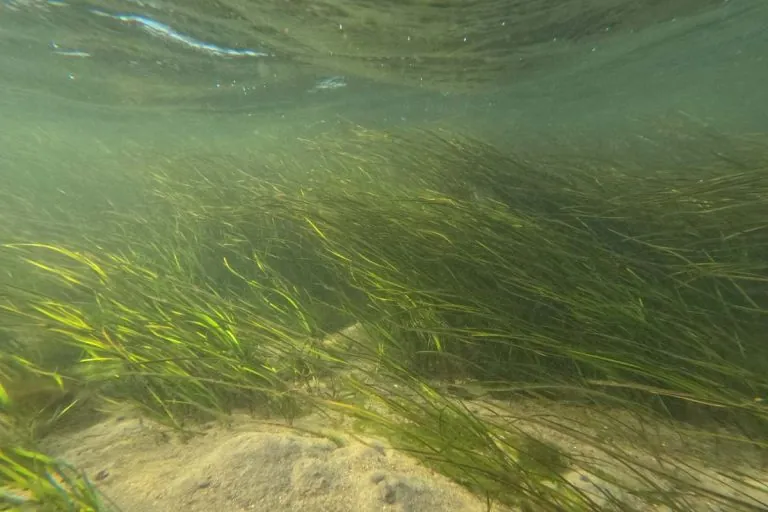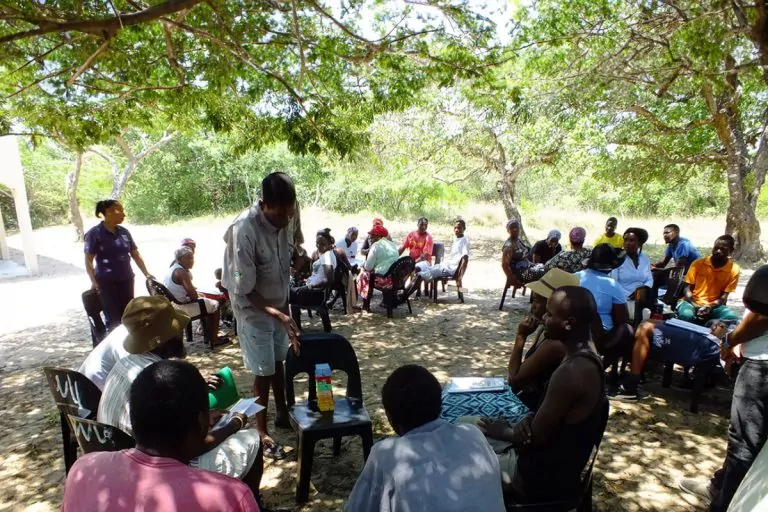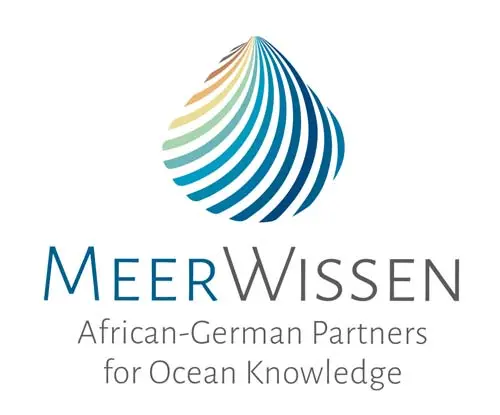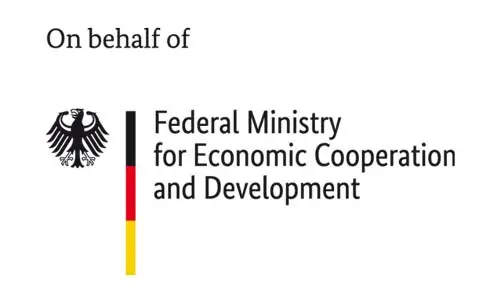Bridging the Gap: Science-Policy Transfer
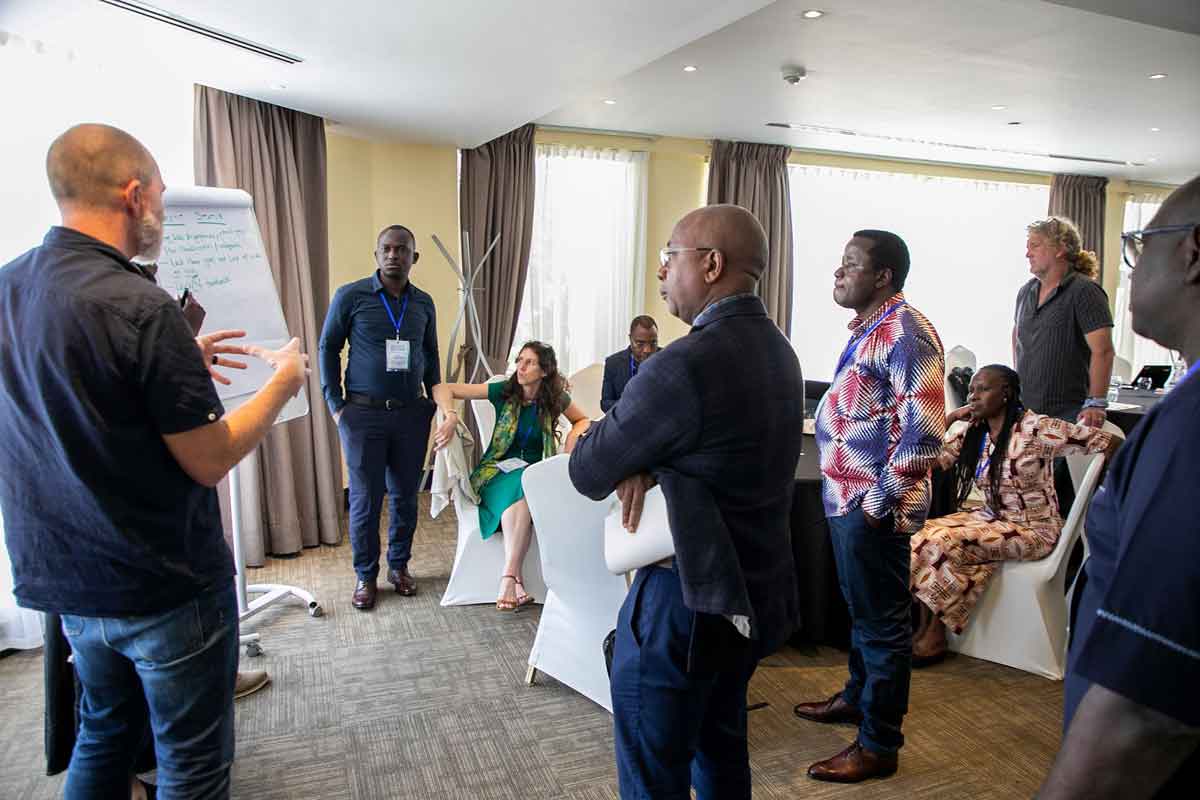
Given the growing pressure on our ocean, science and research are essential pillars for a healthy ocean. Ocean science allows us to understand ocean processes and identify solution-oriented applications. Achieving the ambitious targets of the Agenda 2030 − including Sustainable Development Goal (SDG) 14 (“Life below water”) − requires global trans- and interdisciplinary partnerships that bring together multiple actors to mobilise all available resources and capacities.
Table of Contents
Strengthening Science-Policy Partnerships for Sustainable Ocean Management
A close collaboration between marine scientists and decision-makers is key to provide the latter at both policy and management level with up-to-date and accurate science-based information to effectively protect and manage marine resources. However, in many developing countries, this information and data is often unavailable, inaccessible, or outdated. Research agendas and the data generated often do not meet the needs of decision-makers. Equally, many developing countries cannot afford to undertake research on the required scale and need more capacity and resources to evaluate data systematically and to draw actionable conclusions for knowledge-based decision-making.
Knowledge transfer between science and policy can enable coastal nations in developing economic activities that are ecologically sustainable and thereby in balance with the long-term capacity of ocean ecosystems to remain resilient and healthy. Therefore, the effective exchange of knowledge between the scientific community and policymakers is crucial to empower coastal nations to cultivate economic ventures that align with the sustainable capacity of marine ecosystems to thrive and endure. Acknowledging the importance of science and policy working more closely together and fostering seamless science-policy transfer ensures that decision-makers are equipped with the latest knowledge to make informed decisions that not only drive economic growth, but also preserve the health and resilience of our oceans for future generations.
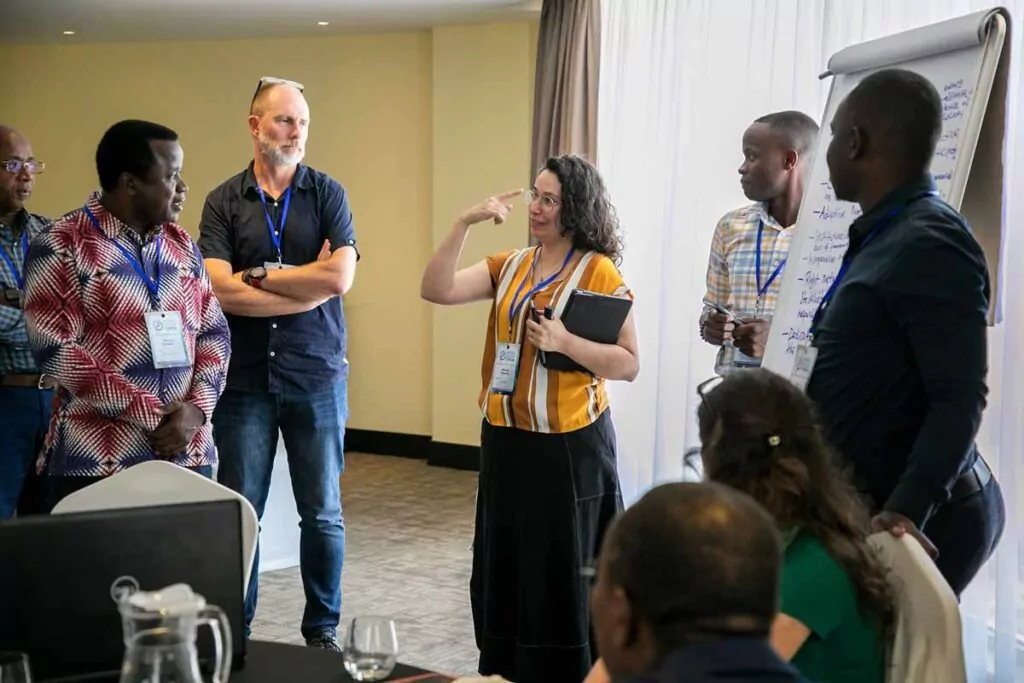
The Science-Policy Interface
Knowledge exchange among scientists, policy makers and society enables coastal nations and island states to develop economic activities that are in balance with the long-term carrying capacity of marine and coastal ecosystems. There is a growing understanding of how the science-policy interface can be strengthened. Methodological approaches, core guidelines, communities of practice and case studies of effective science-policy engagement are becoming more widely available. Yet, researchers and policy makers continue to face challenges in knowledge exchange, and this is affecting both policy decisions and their impact on society.
Policymakers operate in a complex environment, facing a range of demands, often in a time-constrained setting. Decision-making is shaped by personal and institutional values, the availability of resources, personal experience and expertise, pragmatic political considerations, traditions, habits, and a host of other influences. In this environment, evidence is a necessary, but not sufficient condition for decision-making. Researchers and research funding institutions, in turn, may for any number of reasons not consider promoting policy uptake of their (funded) research as a responsibility or a priority. Even where researchers have bought into the need for policy engagement, they often lack training and support, while competing demands related to publishing, lecturing, and fundraising may mean that promoting policy uptake drops ever lower down their priority list. It is clear, then, that the science-policy interface, those “social processes which encompass relations between scientists and other actors in the policy process, and which allow for exchanges, co-evolution, and joint construction of knowledge with the aim of enriching decision-making” (WIOMSA, 2020), face a range of challenges, for example a lack of training for scientists in navigating the decision-making processes and a lack of mutual understanding of the scientific process and the policy cycle, which includes the time scale and characteristics of achieving a successful outcome.
Bridging the Gap between Science and Policy
The worlds of science and policy do not come together by default. Evidence-based policy requires solid and often long-term trend data, which takes years or even decades to produce. In politics, time is of the essence when making momentous decisions in the face of stakeholder pressures, social responsibility, party politics and periodic elections. Many research projects only receive funding for a specific one-time aim, which hamper the production of the necessary trend data. Further, even when scientific results have enormous potential for marine policy, they are generally found in scientific journals and not in formats that are digestible for policymakers. This conundrum in the status quo of science and policy calls for innovation, the easement of constraints of the scientific systems that scientists have to face, new ways of communicating and collaborating, and sharing expertise across boundaries of professions and nations.
Creating mechanisms for ongoing dialogue and knowledge exchange will ensure that policies are not only informed by the latest scientific evidence, but also adaptable to changing environmental conditions. Through fostering a closer relationship between science and policy, a future where economic prosperity goes hand in hand with the protection of our precious marine ecosystems can be built.
We need to develop collaborative platforms to facilitate regular dialogues and interactions between scientists and policymakers. The effectiveness of science-policy transfer is enhanced by creating spaces where experts can share their findings, perspectives, and recommendations. This continuous exchange of information will enable decision-makers to implement strategies and regulations that are not only based on scientific evidence but also take into account the long-term sustainability of our oceans.
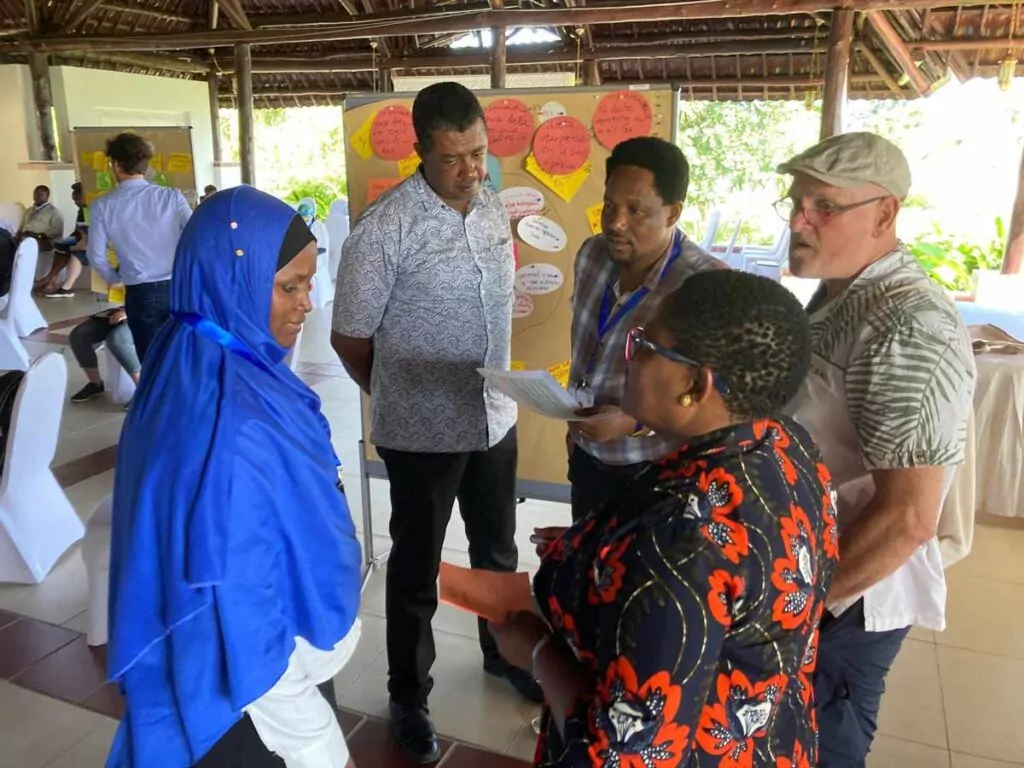
Co-design as the Basis for Science to Policy Uptake
Global change and the need for sustainability calls for more integrative research with new strategies and approaches. Research questions need to be defined in interaction with civil society, governments and other stakeholders and should be guided by societal challenges and needs. Collaboration among researchers from different disciplines as well as with relevant stakeholders helps to focus on producing knowledge that directly helps to inform society and decision-makers. This means that we must expand our business-as-usual approach of basic science to also include more applied and transdisciplinary research and the integration of knowledge from different sectors. The UN Decade of Ocean Science for Sustainable Development (Ocean Decade) is supporting such a transformative process and placing emphasis on the importance of co-design. This is seen as a useful step in illuminating how co-design can be used to shape practice in marine research and policy.
Making research relevant to host countries and decision-making processes starts with a joint agenda setting. Projects that base their collaboration on co-design are more likely to be context-specific and respond to local (policy) and societal needs. The power of building healthy relationships based on mutual trust and shared ownership are equally important as data collection, reporting and sharing through common frameworks all gain from such interdisciplinary associations. In this way, co-design is an important building block to bridge the science-policy gap and work towards a prosperous and sustainable future. All in all, “co-design leads to better, societally relevant information and thus to improved policy decisions (e.g., by drawing on more diverse sources of knowledge and targeted, co-developed lines of inquiry) as well as more lasting impacts of a project, including durability of developed structures beyond the funding period of a single project” (Ferse et al. 2022).

